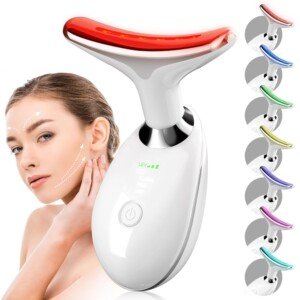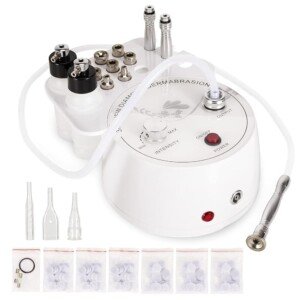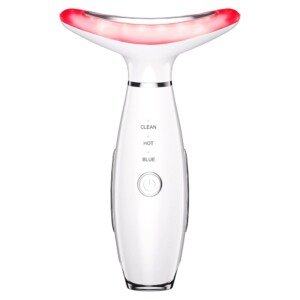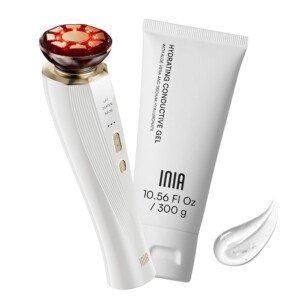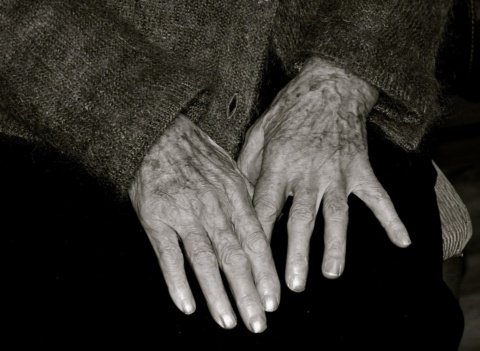As we age, fine lines, wrinkles, and loss of elasticity become common skin concerns. While professional treatments like lasers and microneedling deliver impressive results, at-home anti-aging devices have become increasingly popular for convenience and affordability. However, not all devices are created equal—what do dermatologists actually recommend?
Here are the top dermatologist-approved at-home anti-aging devices, backed by science and expert endorsements.
1. LED Light Therapy Masks
How It Works:
LED (light-emitting diode) therapy uses different wavelengths to target skin concerns:
- Red Light (630-660 nm): Boosts collagen, reduces fine lines, and improves skin elasticity.
- Near-Infrared Light (800-850 nm): Helps with deeper tissue repair and inflammation.
Recommended Devices:
- Dr. Dennis Gross DRx SpectraLite FaceWare Pro (FDA-cleared)
- CurrentBody Skin LED Light Therapy Mask (clinically tested)
Why Dermatologists Recommend It:
Dr. Whitney Bowe, a board-certified dermatologist, advocates for LED masks because they are safe, non-invasive, and improve skin texture over time with consistent use.
2. Microcurrent Devices
How It Works:
Microcurrent devices deliver mild electrical currents to stimulate facial muscles, mimicking a "natural facelift" effect by lifting and toning sagging skin.
Recommended Devices:
- NuFace Trinity (FDA-cleared, improves contours)
- ZIIP Beauty Device (combines microcurrent and nanocurrent for enhanced results)
Why Dermatologists Recommend It:
Dr. Ellen Marmur, a NYC-based dermatologist, notes that microcurrent devices provide subtle but noticeable tightening, especially around the jawline and cheeks.
3. RF (Radiofrequency) Devices
How It Works:
RF devices use heat to stimulate collagen and elastin production, helping to firm and tighten skin.
Recommended Devices:
- Tripollar STOP Vx (clinically proven for wrinkles and elasticity)
- NEWA RF Wrinkle Reduction Device (FDA-cleared for at-home use)
Why Dermatologists Recommend It:
Dr. Hadley King, a dermatologist, explains that RF devices help improve skin laxity with consistent use, though results are milder than professional treatments.
4. At-Home Microneedling Pens
How It Works:
Microneedling creates tiny punctures in the skin to trigger collagen production, improving wrinkles, scars, and skin texture.
Recommended Devices:
- Dr. Pen Ultima A6S (adjustable needle depth, FDA-approved)
- SkinPen Precision (medical-grade, recommended for post-care)
Why Dermatologists Recommend It:
Dr. Corey Hartman, a board-certified dermatologist, advises using sterile cartridges and proper post-care to minimize irritation and infection risk.
5. IPL (Intense Pulsed Light) Devices
How It Works:
IPL targets pigmentation (dark spots, sun damage) and stimulates collagen for a more even complexion.
Recommended Devices:
- Braun IPL Silk Expert Pro 5 (FDA-cleared, reduces hyperpigmentation)
- Foreo UFO Smart Mask Treatment (combines IPL with Thermo & Cryo-Therapy)
Why Dermatologists Recommend It:
Dr. Sapna Westley emphasizes that IPL is best for those with fair to medium skin tones (not recommended for deeper skin due to hyperpigmentation risk).
Key Takeaways: How to Choose the Right Device
✔ Target Your Concerns: Wrinkles? Try LED or RF. Sagging? Microcurrent works best. Pigmentation? Opt for IPL.
✔ Look for FDA-Cleared Devices: Ensures safety and efficacy.
✔ Be Consistent: Most devices require weeks to months of regular use for visible results.
✔ Consult a Dermatologist: Especially if you have acne, rosacea, or sensitive skin.
Final Thoughts
At-home anti-aging devices offer a convenient way to maintain youthful skin between professional treatments. While they are not as powerful as in-office procedures, dermatologist-approved devices can provide noticeable improvements with consistent use.
Do you use any of these devices? Share your experience in the comments!
Sources:
- American Academy of Dermatology (AAD)
- Dermatologist interviews (Dr. Bowe, Dr. Marmur, Dr. King)
- Clinical studies on FDA-cleared devices
(Disclaimer: Always consult a dermatologist before starting any new skincare device, especially if you have underlying skin conditions.)
-
2025 New Face and Neck Massager Tool, 7 Colors LED Womens Skin Care Facial Massager for Skin Rejuvenation, Lifting, Toning, Glow Boost-White
Original price was: $29.99.$24.99Current price is: $24.99. -
3-in-1 Beauty Massager for Face and Neck, Based on Triple Action LED, Thermal, and Vibration Technologies for Skin Care,Improve,Firm,Tightening and Smooth
Original price was: $23.96.$21.96Current price is: $21.96. -
3-in-1 Red Light Therapy for Face and Neck, Skin Tightening Device True Beauty Glow Facial Massager for Skin Care, Effective Wrinkle Reduction Anti-Aging with Lifting,…
Original price was: $139.99.$109.99Current price is: $109.99.


